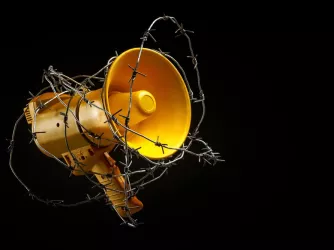Table of Contents
FIRE Corrects the Record on 'Inside Higher Ed' Reporting of UNC Case
Inside Higher Ed runs a story today on the case of Elliot Cramer, Professor Emeritus at the University of North Carolina at Chapel Hill (UNC), whose UNC network privileges were terminated by the university as a result of Joseph Villarosa's attempts to draw UNC into a private dispute between him and Cramer. (Villarosa is unaffiliated with UNC.) Inside Higher Ed's story is informed by our press release about the case, released yesterday, and we're grateful for its coverage of the situation.
However, Inside Higher Ed's article overemphasizes the role of an earlier dispute involving the Friends of Orange County Animal Shelter (FOCAS), with which Cramer is associated as a board member, in UNC's actions against Cramer. I summarized the incident in this way yesterday, and readers can follow the link to read more of the primary documentation:
According to records posted by Cramer, Villarosa contacted FOCAS in November 2010, raising questions about FOCAS' tax status in conjunction with the organization's efforts raising funds to support a lawsuit against an animal shelter in Robeson County. Villarosa also questioned the presence of a FOCAS email address with a 'unc.edu' domain, and whether this implied some kind of endorsement from UNC. On this latter point, Villarosa complained to the UNC administration multiple times demanding it take action against Cramer. Regarding the possibility of untoward activities by FOCAS, UNC General Counsel Leslie C. Strohm received authorization to search through Cramer's university email files. In January 2011, Strohm notified Cramer that she had done so, and asked him to clarify her understanding of FOCAS' activities. Cramer's response was evidently satisfactory, because after he corrected Strohm's account and replaced the FOCAS email account with an address unaffiliated with UNC, no action was taken against Cramer. Though Cramer would later pursue grievances both at the campus and UNC system level regarding the inspection of his email, the matter was otherwise resolved.
By emphasizing this exchange, Inside Higher Ed gives short shrift to the most pressing issue of the case: Villarosa's complaint to UNC about a link on Cramer's university website which ultimately led readers to a page about their dispute, and his demands that it take action against him. In light of these oversights and to prevent any further misunderstanding, FIRE submitted the following comment to Inside Higher Ed:
Contrary to the article's emphasis, the confusion over FOCAS' email address played no significant role in UNC's decision to terminate Cramer's network access. That matter was resolved long before UNC decided to terminate his IT access; the university took no further action once it brought the matter to Cramer's attention and Cramer removed the email address from the organization's website at UNC's request. By emphasizing this minor interaction, UNC distracts from the real issue of this case: namely, the university's decision to allow itself to be bullied by a third party into removing an emeritus professor from its network.
Villarosa's complaint centered on a single link posted on Cramer's UNC website, which linked users to the page of an animal rights organization with which Cramer works, which in turn contained a link to a page with information about Cramer's and Villarosa's ongoing dispute. After Villarosa complained to UNC about this link, UNC General Counsel Leslie Strohm improperly ordered Cramer to remove it from his site.
It is especially worth noting that Strohm ordered Cramer to remove the link despite the fact that she informed Villarosa -- in no uncertain terms, and on the same day that she issued her order to Cramer -- that Villarosa's dispute with Cramer was not a UNC matter and that, in Strohm's words, Cramer's website contained "no reference to [Villarosa] whatsoever."
The bottom line here is that while UNC insists that it is Cramer has violated university policy by "unacceptabl[y]" diverting university resources, Villarosa's complaints prompted UNC's punishment of Cramer. UNC has capitulated to a persistent heckler and has demonstrated to all who would silence UNC professors precisely how annoying they must be to achieve their desired end.
I encourage all readers to visit our case page for more information on Cramer's case. I also encourage interested parties to write to UNC Chancellor Holden Thorp via our website and express their concerns for free speech at UNC. Of course, we will keep you posted on all developments.
Recent Articles
FIRE’s award-winning Newsdesk covers the free speech news you need to stay informed.

Is it ‘hate speech’ to say Jesus needs a haircut?

VICTORY: Federal court blocks Texas A&M’s unconstitutional drag ban

Columbia caves to feds — and sets a dangerous precedent
